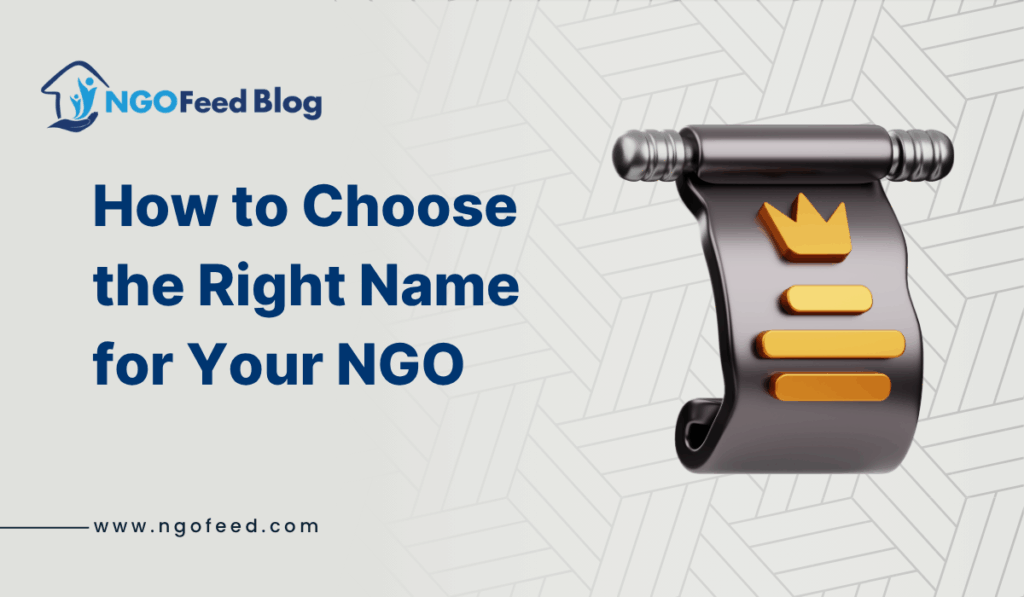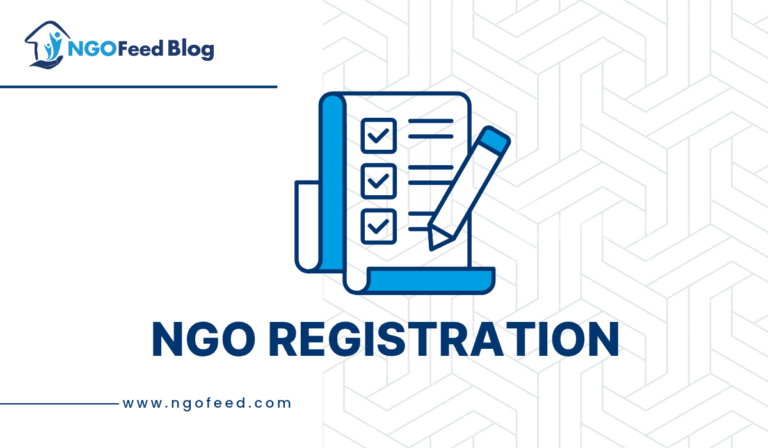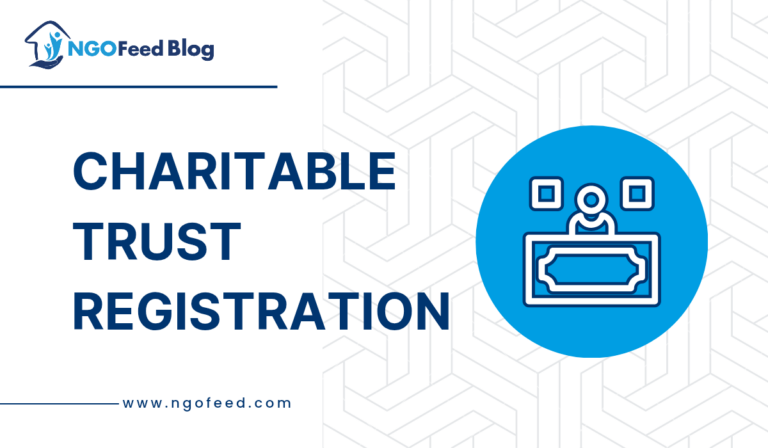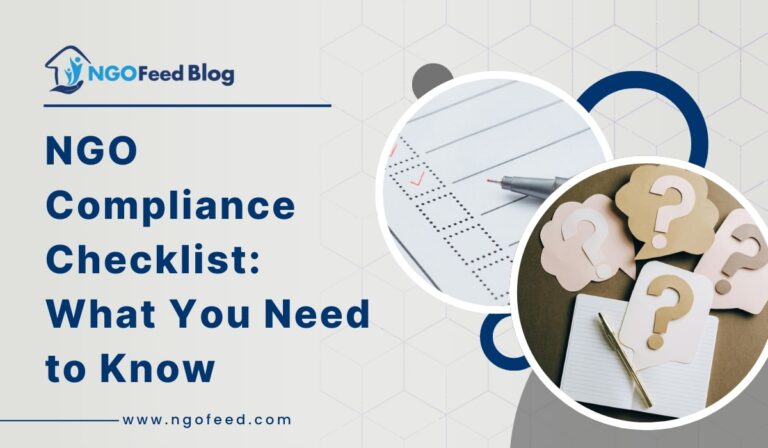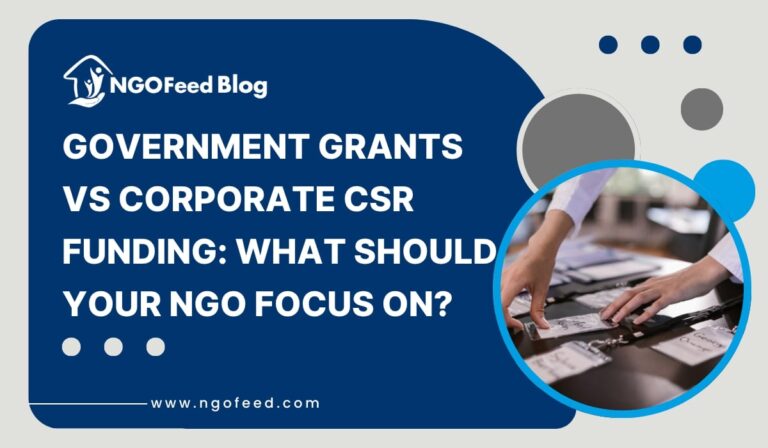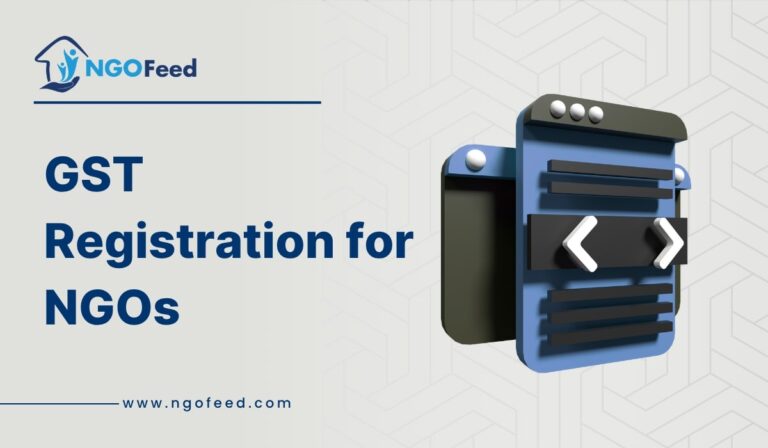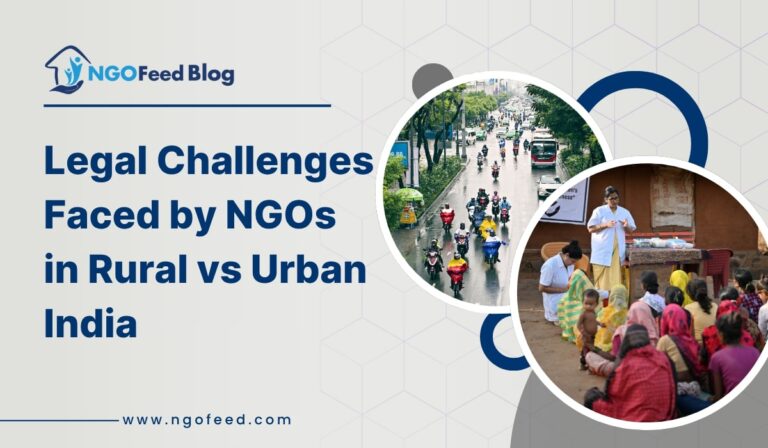Introduction
A strong NGO name is vital for 2025 branding and compliance. It instantly communicates mission, builds credibility, and fosters emotional trust with donors and communities. A purposeful, unique name helps your institution stand out in a competitive social sector.
A well-planned name improves digital visibility and search rankings. It should be easy to pronounce, meaningful, and flexible for future expansion. Authorities may reject names matching existing bodies, so verification prevents registration delays and legal conflicts.
A well-planned name improves digital visibility and search rankings. It should be easy to pronounce, meaningful, and flexible for future expansion. Authorities may reject names matching existing bodies, so verification prevents registration delays and legal conflicts.
Also Read: Cultural Appropriation Vs Cultural Respect in NGO Campaigns
Table of Contents
Why choosing the Right NGO Name Matters
Prioritize legal compliance (Trust, Society, Section 8 Company) and uniqueness. Ensure the name reflects your mission.
Example : Empowerment Foundation
It should be memorable, and available for domain names/ Social media.
Also Read: FCRA Rules 2025: What Every NGO in India Must Know
- Create a Strong First Impression: Your name tells people what your organisation stands for from the very beginning.
- Reflects Your Mission: Whether you work in education, healthcare, environment, or women empowerment, the name should clearly express your purpose.
- Build Trust & Credibility: Donors, partners and grants agencies often judge seriousness and legitimacy based on your NGO’s name.
- Enhances Branding & Marketing: A unique, mission-focused name makes it easier to design logos, create social media handles, and maintain consistent messaging.
- Improves Digital Visibility: SEO-friendly names help you NGO appear in search results, boosting online reach and donor engagement.
- Helps You Stand Out : A distinct name differentiates your NGO in India’s saturated social sector.
- Easy for communities to Understand: The name should be simple, relatable, and easy to pronounce in local languages.
- Supports Long Term Growth: A strong name builds confidence among stakeholders and sets the foundation for future expansion.
Understand Your NGO’s Mission and Vision
Choosing a name that aligns with your core social objectives is vital for immediate recognition and sustained community engagement.
find answer before deciding name :
- Who will the NGO serve?
- What core problem will you solve?
- What are your long-term goals?
- what values represent your organisation ?
Example :
If your NGO focuses on women empowerment, names like Sakti foundation, Ujjwala Trust, or Nari Pragati Mission fit your theme.
A name that aligns with you mission help the public instantly understand your work.
Also Read: Values Driven Fundraising
Tips for Creating Right Name for NGO
The process of naming your NGO balances legal compliance with identity. The name must reflect your mission to resonate with donors and beneficiaries, building trust, coverage, and a unique identity in the development field.
- Importance of a strong NGO Name : A powerful name instantly communicates purpose, builds credibility, attract donors, and ensures you stand out.
- Mission Alignment in Naming : NGO names must clearly reflect work themes and ensuring instant understanding and emotional resonance with the target audience.
Also Read: NGO Darpan Registration
- Legal Compliance for NGO Names : Names must avoid duplication, government-implying, offensive, or prohibited terms without approval to ensure smooth registration process and legal safety.
- Simplicity & Memorability : Short, easy-to-pronounce names improve recall, reduce misinterpretation, and help beneficiaries and supporters connect without confusion or difficulty.
- Emotional Appeal & Trust : Emotion-driven names inspire action, empathy, and belonging, making supporters feel emotionally invested and more likely to engage and contribute.
- Scalability for Future Growth : A future-ready NGO name avoids location or issue restrictions, enabling expansion into multiple causes or regions without limiting brand evolution.
- Domain & Social Media Availability : Checking digital availability ensures consistent branding, smooth handle creation, improved SEO performance, and higher online reach without duplication issues.
By taking the time and the energy to think and to get creative when calling your NGO, you lay the basis of a good, well-known, and purpose-driven brand.
Types of NGO Names to consider
1.Mission-driven names
Name based on social Cause
- Example : Child Hope India, Clean Earth Foundation
2. Value-based names
Reflect values like peace, humanity, empowerment.
- Example: Humanity Trust, Peace Welfare Society
3. Region-based names
Useful for location-specific work.
- Example: Delhi Tribal Welfare Society
4. Abstract or creative names
Modern and unique.
- Example: Udaan Foundation, Aashray Trust
5. Founder-inspired names
Less common but acceptable.
- Example: Rao Charitable Trust
Legal Rules for NGO Name Selection in India
NGO names must follow certain legal guidelines depending on the registration type- Trust, Society, or Section 8 Company.
Common Rules for All NGO Types
- The name must not be identical or too similar to an existing NGO.
- Avoid names that include government terms like “National,” “India,” “Central,” unless special permission is obtained.
- Avoid names that hurt religious sentiments or promote discrimination.
- Avoid names prohibited under the Emblems and Names Act, 1950.
For Society Registration
- The name should not conflict with existing societies within the same state.
- A unique name helps avoid objections during registration.
For Section 8 Company
- Follow MCA naming guidelines.
- Add words like Foundation, Association, Council, Forum, Federation, etc.
Also Read: Society Registration Process in India
Steps to Brainstorm the Perfect NGO Name
Step 1 : Start with Keywords
Note down your words related to your cause and the combine them creatively.
- Education
- Women
- Health
- Rural
- Environment
- Youth
- Welfare
Step 2: Mix and Match
Create name combinations:
- Cause + Value → Education Hope Foundation
- Region + Cause → Rajasthan Environment Council
- Abstract + Mission → Udaan Education Trust
Step 3: Check Meaning in Multiple Indian Languages
India is multilingual. Ensure your name:
- Doesn’t have negative meaning in another language
- Is easy to pronounce
Step 4: Create 20–30 name options
Shortlist the top 5–6 from them.
Also Read: Top 10 Government Schemes For NGOs
How to Check NGO Name Availability in India
A preliminary availability verification across statutory and digital platforms reduces rejection risk and supports stronger brand positioning.
1. Search on MCA (for Section 8 Companies)
Check the name availability tool to avoid rejection.
2. State Society Registrar Website
Every state maintains a list of registered societies.
3. Trust Registration Records
Search at your local sub-registrar office if needed.
4. Google Search
Ensure no similar NGO is already active online.
5. Domain Name Availability
Check whether the .org, .in, or.ngo domain is available.
Also Read: Benefits of Fundraising for Nonprofit Organizations
By doing so, it will detect whether your name will be unique, legal, and meet the expectations of visibility and success in the long term.
Digital Tools to Help You Generate NGO Name Ideas
Several online tools can help you brainstorm creatively:
- Namelix – Generates modern, short names
- NameMesh – Combines keywords for unique ideas
- Wordoid – Creates creative abstract names
- Business Name Generator Tools– For quick inspiration
- ChatGPT – Personalized name suggestions with mission focus
Using these tools saves time and expands your creativity.
Common Mistakes to Avoid When Naming Your NGO
- Using very long names : Difficult for donors and beneficiaries to remember.
- Choosing names similar to existing NGOs : Causes legal issues and confusion.
- Picking names with negative or sensitive meanings : Always check meanings in Hindi and local languages.
- Choosing overly narrow names : If you name your NGO “Save River Foundation,” it may feel limiting if you later work in education or health.
- Using personal names without purpose : Unless you are honouring someone significant, avoid adding personal names
SEO Tips for Choosing an NGO Name in the Digital Age
In today’s digital world, your name should also support online visibility.
Tips:
- Include relevant keywords (education, environment, rural, women, welfare).
- Choose a name with available social media handles.
- Prefer names easy to type and search.
- Avoid confusing spelling variations.
- Select a matching domain name for your website.
A name optimized for SEO increases your chances of ranking on Google and attracting donors digitally.
Final Checklist Before You Finalize Your NGO Name
Use this checklist to finalize your name:
- Is the name unique?
- Is it easy to pronounce and remember?
- Does it reflect your mission?
- Is it legally acceptable?
- Is the domain name available?
- Does it sound professional?
- Does it support future growth?
If your name meets all the above criteria, you’re ready to register.
Conclusion
Choosing the right name for your NGO in India is a strategic decision that influences your reputation, legal registration, branding, and long-term impact. A meaningful and unique name not only represents your mission but also builds trust among donors, volunteers, and beneficiaries. By understanding your mission, following legal guidelines, using digital tools, and ensuring SEO readiness, you can create a name that truly reflects your vision for social change.
Whether you are starting a new NGO or rebranding an existing one, take time to research, brainstorm, and finalize a name that will stand strong for years to come. A powerful name is the first step toward creating a powerful impact.
Frequently Asked Questions (FAQs)
1. How can i create a unique name ?
Create a unique name by combining original keywords, checking domain availability, and avoiding common phrases. Brainstorm creative word blends, use naming tools, and ensure the name is short, memorable, brand-focused, and optimized for SEO visibility.
2. Can NGO name be changed after registration?
Yes, legally you can change via amendment resolution. For Section 8 via MCA, for Society/Trust via register. Update it on NGO Darpan also after approval.
3. How to register an NGO with a unique name in India?
To register an NGO in India with a unique name, first choose an original, non-duplicate name, check availability, then register under the Trust Act, Societies Act, or Section 8 Company. Prepare required documents and submit them for approval.
4. Digital tools to help brainstorm NGO names ?
Useful digital tools for brainstorming NGO names include Namelix, NameMesh, Wordoid, Canva’s name generator, and ChatGPT. These platforms create creative, unique, and SEO-friendly name ideas. You can refine results by keywords, mission focus, audience, and domain availability.

